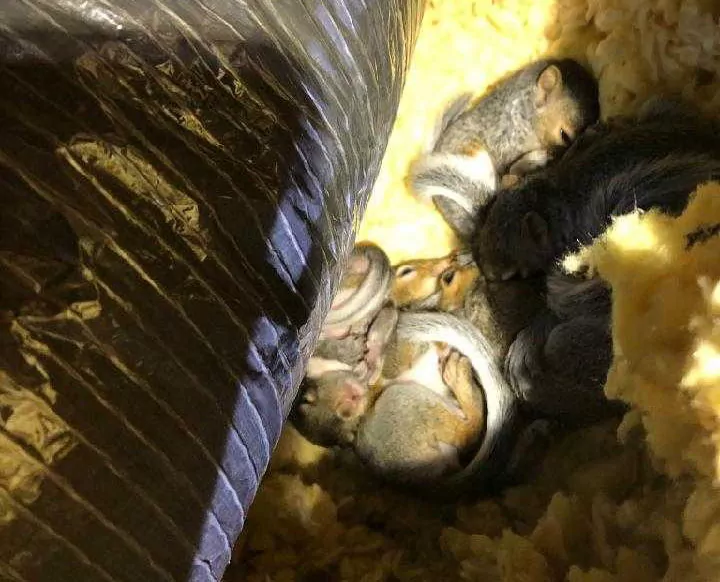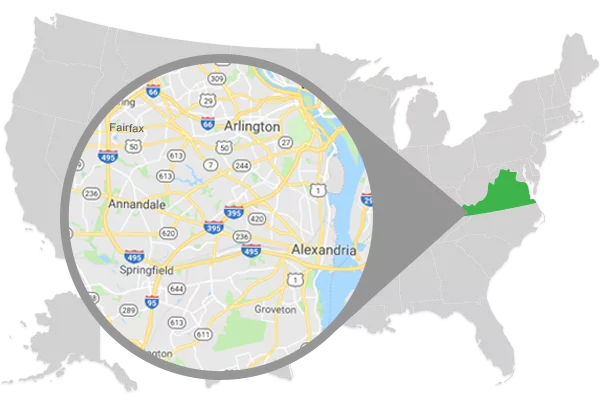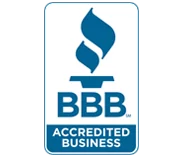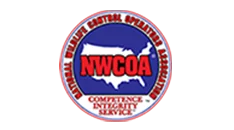
What to do when there is a squirrel nest in your home
Squirrel nesting season is when female squirrels make nests for themselves and their unborn babies to prepare for their birth. Squirrels have two main birthing seasons, spring and summer. The first litter of squirrels arrive and live with their mothers in the nests they make for anywhere from 10-12 weeks. During that time, mother squirrels will teach their babies or kits necessary skills for survival when they leave the nest. At six weeks old, kits begin to explore outside of their nest. Squirrel nesting is most noticeable toward the end of June and July and kits remain with their mothers often until the end of August or even later. The nests provide warmth and safety and can often be found in trees or other secluded areas.
Where do squirrels build their nests?
While squirrels intend to build their nests in safe areas, sometimes they choose to build their nests in human dwellings such as attics. These locations offer the squirrels shelter and relief from the elements, in particular rain and extreme heat. Squirrels are interesting because they most often have more than one nest. This second or even third nest acts as a rest location while they are gathering food for themselves. When squirrels decide to make their nest in someone’s home, they most often do so because they have a nearby food source. Squirrels need to provide for themselves especially while their young are nursing, they do not want to have to go too far to look for food because that means they will be away from their kits longer.
How to discourage squirrel nesting
There is no way to encourage a squirrel to build its nest in a particular place, but there certainly are ways in which people can discourage squirrels from forging their nest in their home.
- Eliminate the food source
- Squirrel-proof your home
Make sure all food is put away in the home properly and discarded in such a way that does not attract squirrels. Additionally, squirrels like bird seed and will frequent areas where there are bird feeders. Squirrels are small and can get in very small places with ease. They will chew and destroy siding, shingles, and other parts of the home to get inside and build their nests. Make sure to get repairs done when you notice your home needs them and also consider sealing up chimneys and keeping windows and other entry-ways closed. Trim trees and bushes and regularly clear out gutters so that it is more difficult for the squirrels to get on or near the home. Keeping the grass short and the external parts of the property tidy may also help to detract squirrels. Occasionally, squirrels manage to get into homes despite taking the necessary precautions and steps.
What should you do if you have a squirrel nest?
In the later end of the summer it is important to remember baby squirrels may still be nesting with their mothers. While there are ways to get the squirrels to leave, such as by making noises, it is important to note that mother squirrels will not abandon their babies before they are mature enough to survive independently. Squirrel removal and squirrel nest removal should be left up to a professional wildlife removal company to ensure the safety of the home’s inhabitants and to maintain the integrity of the home. In addition to squirrel removal services, Summit can take preventative measures to ensure squirrels do not have access to your home. Summit can repair and encapsulate crawl spaces, restore insulation and roofs and do other home improvements if you have squirrel damage in your home. For all your wildlife removal and squirrel-proofing needs, contact at 703-884-2124 for a free estimate and competitively-priced, high quality service.












